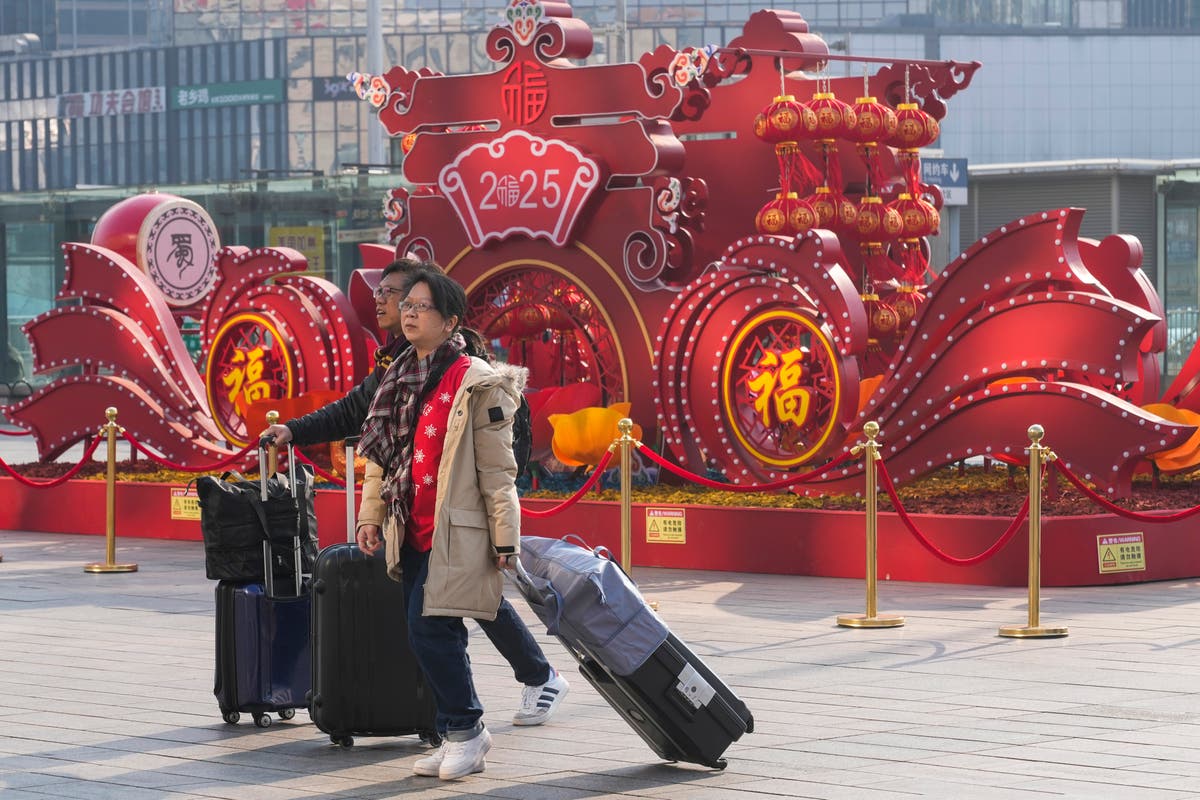Millions of Chinese citizens embarked on journeys home on Friday, marking the start of the Lunar New Year travel rush. Lugging suitcases and gifts, travellers crowded train stations and airports across the world, eager to reunite with family for the Year of the Snake celebrations. This year’s holiday, falling between January 28th and February 4th, is China ’s largest annual festival.
The Lunar New Year typically provides a significant boost to the Chinese economy, with increased spending in sectors like retail, entertainment, and dining. Authorities have extended the official holiday period to eight days, aiming to encourage consumer spending and bolster the sluggish economy. In addition to the extended holiday, the government has implemented several measures to stimulate consumption.

These include promoting winter holiday destinations and ensuring affordable air travel options, as announced at a State Council press conference on Friday. These initiatives are part of a broader effort to revitalize the economy, which has also seen interest rate cuts, pension increases, and expanded trade-in programs for consumer goods. Despite these efforts, some businesses and travellers report that spending remains cautious.
Concerns linger about the ongoing property market downturn and job security, leading many to continue tightening their belts. While the festive atmosphere is undeniable, the underlying economic anxieties suggest a tempered celebration this Lunar New Year. A Beijing-b.

























